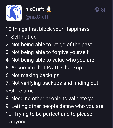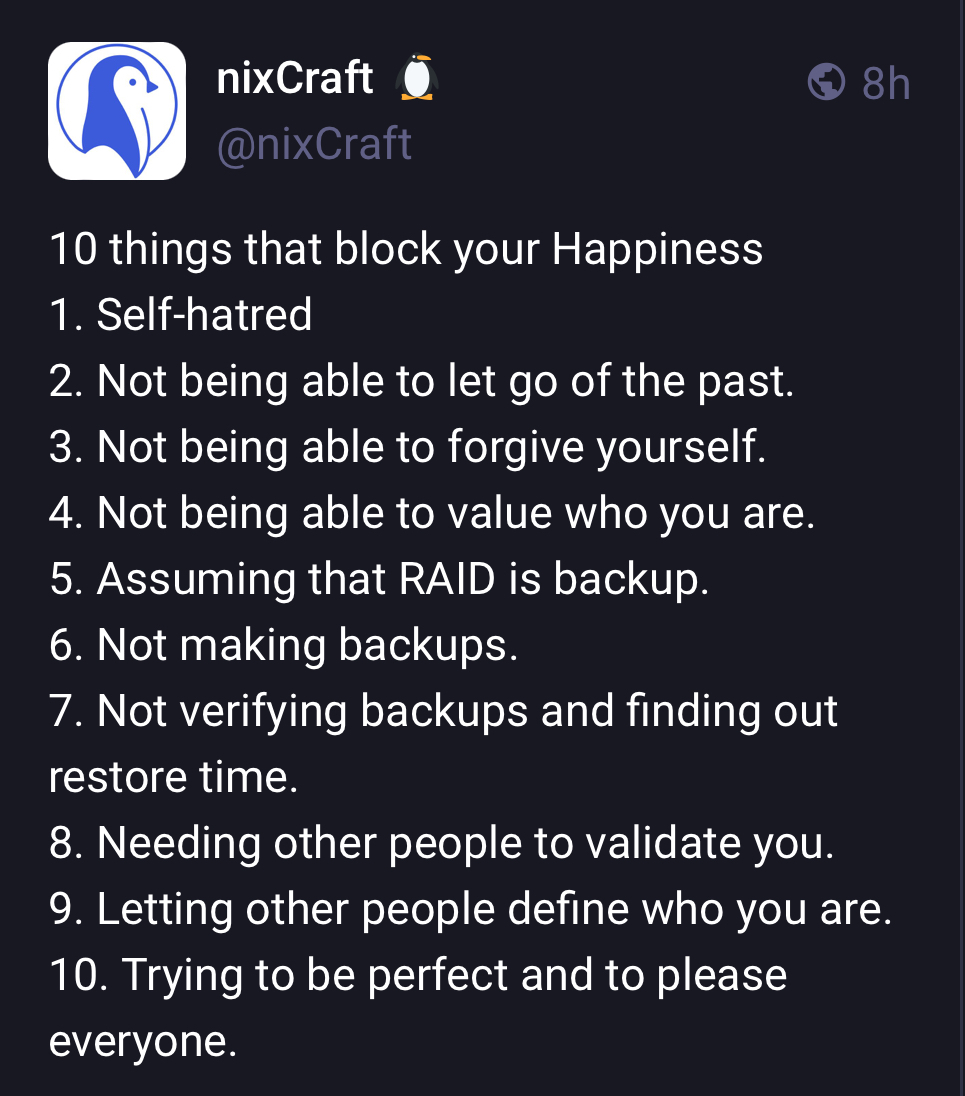10 things that block your Happiness
10 things that block your Happiness


Transcript:
10 things that block your Happiness
- Self-hatred
- Not being able to let go of the past.
- Not being able to forgive yourself.
- Not being able to value who you are.
- Assuming RAID is backup.
- Not making backups.
- Not verifying backups and finding out restore time.
- Needing other people to validate you.
- Letting other people define who you are.
- Trying to be perfect and to please everyone.